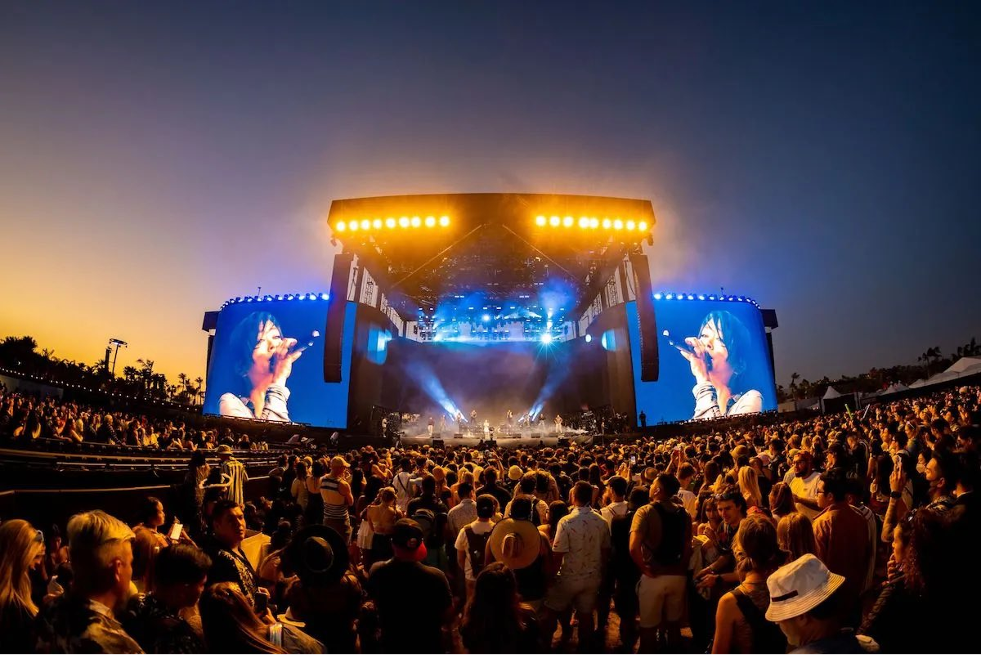Whether we like it or not, Coachella is one of the most talked about music festivals throughout the year, and 2022 was no different. After being on standby for two years due to COVID-19, Coachella came back stronger than ever, with larger artists, stages, and audiences. While Coachella has been “cancelled” several times over the internet, this still hasn’t hindered its popularity in the States and across the globe.
Let’s begin with the environmental factors. Coachella is home to a tight-knit farming community who are currently in a difficult position amidst a water supply crisis; issues such as drought, increasing litigation and regulations as well as the effects of climate change are only getting worse. Whilst the event itself brings some revenue into the town, the majority of it goes to content creators, investors, and large problematic corporations, rather than shining a light on the issues of the community and what can be done to help. While the festival’s For Our Planet campaign promises to “educate” and “speak up” on such issues, it just seems like a facade to optimise their image and draw in more people. The loose promise of “donate[ing] all unutilized goods to local community partners”, which seems like another band-aid fix meant to put up that image of sustainability without having to work towards a prolonged solution.
Now, with the issue of overcrowding in COVID era. Despite the large location and the various stages, the sold out 750,000 capacity is still a large ask of a space like that. This is also where their sustainability front seems to have another hole; whilst they are providing purchasable refill water bottles, the cues on taps seem to be “never-ending” and “impossible to get to” according to social media reports. Alongside the other issue of intoxication, whether it be alcohol or any other form of mind-altering substances, a large crowd is bound to cause a place of great discomfort, distrust and may even incite physical fighting or disagreement. Additionally, influencers with money and brand deals are provided with the luxuries, however, for the general public in attendance, accommodation and food just add on the bill. Can you even begin to imagine the pricing of everything combined? I would pass out. Not to mention, some were also denied access even after purchasing tickets, due to capacity limits from COVID restrictions.
Of course, we have to address cultural appropriation around Coachella fashion. It is a shame that only recently cultural appropriation was addressed, after appropriation of bindis, braids and specific indigenous pieces that are not for flaunting, especially at a music program.
I don’t wish to disregard Coachella for the pop culture event it is, but I think there can be a lot more done to better the experience for everyone involved. There are obviously positives; everyones favourite celebrities and performances throughout the six-day celebration. With stars like Harry Styles, Billie Eilish, Black Pink, the Weekend, Doja Cat and more, there is bound to be talk around how it was and what they were wearing and such. I cannot lie, it fills my feed and is something of interest to me. Apart from the problematic aspects, I also acknowledge their improvement in accessibility and having the festival available to stream online, which allows some of the vibes to be present in your own bedroom. Despite, the positives, I still don’t think I can enjoy the performances as easily anymore.
Article written by Nishtha Sharma


